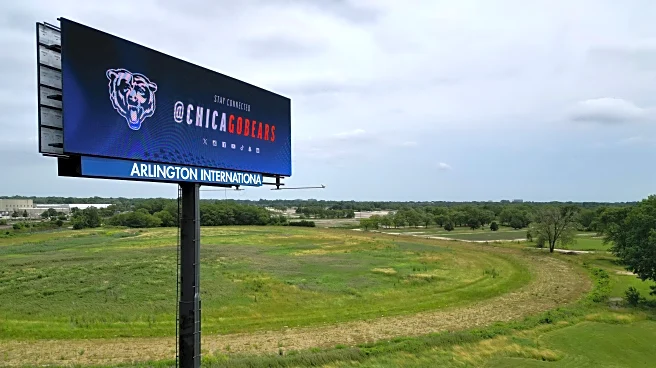Rapid Read • 8 min read
A Colorado ranching family has entered a $6.7 million contract to purchase the Muleshoe Ranch in Wyoming, reflecting a trend among aging ranchers selling off herds due to record beef prices. The seller, facing labor shortages and retirement age, decided to liquidate 350 head of cattle. Beef prices have surged, with uncooked beef steaks costing 198.43% more in 2025 compared to 1997, according to the U.S. Bureau of Labor Statistics. While some ranchers are cashing out, others are holding onto their operations to benefit from high market prices. This has resulted in historically low inventory for ranch properties in Wyoming and Montana.
AD
The decision by aging ranchers to sell off herds amid record beef prices is reshaping the U.S. cattle industry. This trend could lead to a changing of the guard in cattle ownership, affecting the structure of ranching businesses. The high beef prices are driven by increased demand, quality improvements, and international trade developments. However, rising operational costs and the potential for consumer price resistance pose challenges. The tight ranch real estate market indicates a shift in land ownership dynamics, impacting future agricultural practices and economic opportunities in rural areas.
As beef prices remain elevated, ranchers may continue to sell herds while retaining land, leasing grazing rights to other operators. This strategy allows them to capitalize on high cattle prices without the burden of overwintering livestock. The smallest cattle herd since 1970 suggests prices will stay high for another year. Industry stakeholders are watching consumer price tolerance closely, as sticker shock could eventually slow beef sales. The ongoing drought and international demand for American beef will further influence market conditions and ranching decisions.
The shift in ranching practices due to high beef prices raises questions about the sustainability of traditional cattle operations. As older ranchers exit the industry, younger generations may face barriers to entry, potentially altering the cultural landscape of rural communities. Estate tax relief has facilitated some transitions, but the decision to sell often hinges on family interest in continuing ranching. The evolving market dynamics could lead to long-term changes in land use and agricultural policy, affecting food security and rural economies.
AD
More Stories You Might Enjoy











